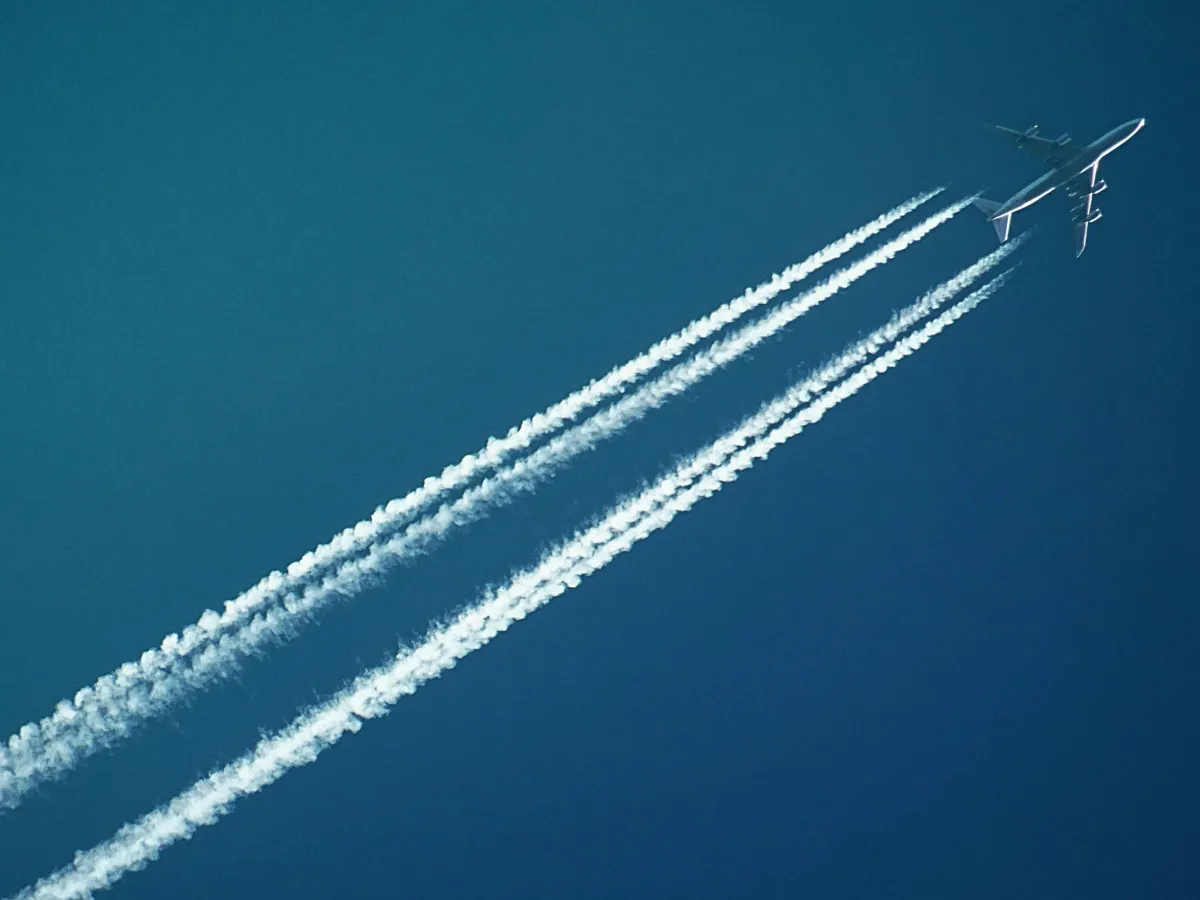Blog

Pilot Mental Health and Flight Duty: Essential Resources and Support for Safe Aviation
The intersection of pilot mental health and flight duty represents one of the most critical yet complex aspects of modern aviation safety, encompassing a sophisticated understanding of how psychological wellbeing directly influences flight performance, decision-making capabilities, and overall aviation safety outcomes. This comprehensive exploration examines the multifaceted relationship between mental health and flight operations, providing essential insights into the challenges pilots face, the resources available to support their psychological wellbeing, and the systematic approaches necessary to maintain both individual pilot health and broader aviation safety standards.
The aviation industry has undergone a profound transformation in its recognition of mental health as a fundamental component of flight safety, moving beyond traditional approaches that often stigmatized psychological concerns to embrace comprehensive support systems that acknowledge the unique stressors and demands inherent in aviation careers. This evolution reflects growing scientific understanding of how mental health factors influence cognitive performance, situational awareness, communication effectiveness, and the complex decision-making processes that are essential for safe flight operations.
Modern approaches to pilot mental health and flight duty recognize that aviation professionals operate in uniquely demanding environments that present psychological challenges distinct from other professions. The responsibility for passenger safety, the complexity of modern aircraft systems, irregular schedules, time zone changes, social isolation, and the high-stakes nature of aviation operations create a constellation of stressors that require specialized understanding and targeted support interventions.
What Are the Key Mental Health Challenges Pilots Face During Flight Duty?
The mental health challenges that pilots encounter during flight duty represent a complex interplay of occupational stressors, environmental factors, and personal circumstances that can significantly impact psychological wellbeing and professional performance. Understanding these challenges is essential for developing effective support systems and interventions that address the unique demands of aviation careers while promoting both individual pilot health and broader aviation safety outcomes.
Acute stress responses during flight operations constitute one of the most immediate mental health challenges that pilots face, particularly during high-workload phases of flight, emergency situations, or challenging weather conditions. The physiological and psychological demands of managing complex aircraft systems while maintaining situational awareness and making critical decisions under time pressure can trigger intense stress responses that may overwhelm normal coping mechanisms and impact cognitive performance.
The responsibility for passenger safety creates a unique psychological burden that distinguishes aviation from most other professions, as pilots must maintain optimal performance while carrying the weight of responsibility for hundreds of lives. This responsibility can manifest as performance anxiety, hypervigilance, or intrusive thoughts about potential safety scenarios, particularly among newer pilots or those who have experienced previous incidents or near-misses.
Fatigue represents a pervasive mental health challenge in aviation, extending beyond simple tiredness to encompass complex interactions between sleep deprivation, circadian rhythm disruption, and cognitive performance degradation. Pilot fatigue can impair attention, memory, decision-making abilities, and emotional regulation, creating cascading effects that impact multiple aspects of flight performance and psychological wellbeing.
The irregular schedules and frequent time zone changes inherent in many aviation operations create significant challenges for maintaining psychological equilibrium and mental health stability. Circadian rhythm disruption can contribute to mood disorders, anxiety, sleep disturbances, and cognitive impairment, while irregular schedules can interfere with social relationships, family life, and personal routines that normally provide psychological support and stability.
Social isolation represents a significant mental health challenge for many pilots, particularly those involved in long-haul operations or those based away from their home communities. The nature of aviation work can limit opportunities for maintaining social connections, participating in community activities, or developing supportive relationships outside of the aviation environment, potentially contributing to loneliness, depression, and social anxiety.
For pilots experiencing these complex mental health challenges during flight duty, accessing specialized therapy for pilots and aviation professionals can provide personalized support and evidence-based interventions that address both the clinical aspects of mental health concerns and the specific occupational demands and constraints that characterize aviation careers.
How Does Aviation Stress Impact Pilot Performance?
Aviation stress exerts profound and multifaceted impacts on pilot performance that extend across cognitive, physical, and behavioral domains, creating complex interactions that can significantly influence flight safety, operational effectiveness, and overall aviation outcomes. Understanding these impacts is crucial for developing effective stress management strategies and support systems that maintain optimal pilot performance while promoting psychological wellbeing and career sustainability.
Cognitive performance represents the most direct and immediately observable area where aviation stress impacts pilot functioning, as stress responses can significantly impair the mental processes that are essential for safe flight operations. Acute stress can narrow attention and reduce cognitive flexibility, limiting pilots' ability to process multiple sources of information simultaneously and to adapt their thinking to changing operational conditions.
Memory functioning is significantly impacted by aviation stress, with both working memory and long-term memory retrieval showing degradation under stress conditions. Working memory impairment can affect pilots' ability to hold and manipulate information during flight operations, such as remembering clearances, tracking multiple aircraft systems, or maintaining awareness of changing weather conditions.
Decision-making processes are particularly vulnerable to the effects of aviation stress, as stress responses can lead to premature closure, reduced consideration of alternatives, and increased reliance on heuristics or shortcuts that may not be appropriate for the specific situation. Stress can also increase the likelihood of confirmation bias, where pilots seek information that confirms their initial assessment while overlooking contradictory evidence.
Communication effectiveness is substantially impacted by aviation stress, as stress responses can affect both the clarity of communication and the ability to process incoming communications effectively. Stressed pilots may experience difficulty articulating their thoughts clearly, may miss important communications from air traffic control or other crew members, or may misinterpret communications due to reduced cognitive processing capacity.
Which Mental Health Resources Are Available for Pilots?
The landscape of mental health resources available for pilots has expanded significantly in recent years, reflecting growing recognition of the importance of psychological wellbeing for aviation safety and pilot career sustainability. These resources encompass a comprehensive range of services, programs, and support systems designed specifically to address the unique mental health needs and challenges faced by aviation professionals while maintaining appropriate confidentiality protections and career safeguards.
Professional counseling and therapy services represent the cornerstone of mental health resources for pilots, with specialized providers offering evidence-based treatments that are specifically adapted for aviation contexts. These services include individual therapy for addressing personal mental health concerns, couples therapy for relationship issues that may be exacerbated by aviation careers, family therapy for addressing the impact of aviation schedules on family dynamics, and group therapy for pilots facing similar challenges and stressors.
Aviation-specific mental health assessments provide pilots with comprehensive evaluations that address both clinical mental health concerns and aviation-related factors that may impact psychological functioning and flight performance. These assessments are conducted by mental health professionals who understand the unique demands of aviation careers and can provide recommendations that are both clinically appropriate and compatible with aviation safety requirements.
Employee assistance programs (EAPs) offered by airlines and aviation organizations provide confidential mental health support services that are easily accessible to pilots and their families. These programs typically include telephone counseling, crisis intervention services, referrals to local mental health providers, and educational resources on stress management, relationship issues, and other mental health topics relevant to aviation professionals.
Online mental health platforms and telehealth services have become increasingly important resources for pilots, offering flexible access to mental health care that can accommodate the irregular schedules and travel requirements of aviation careers. For pilots seeking convenient and confidential access to mental health support, telehealth counseling provides professional services that can be accessed from anywhere while maintaining the highest standards of care.
Crisis intervention services provide immediate mental health support for pilots experiencing acute psychological distress or mental health emergencies. These services typically include 24-hour crisis hotlines, emergency counseling services, and rapid access to mental health professionals who can provide immediate assessment and intervention when needed.
How Can Pilots Effectively Manage Stress and Anxiety During Flight Duty?
Effective stress and anxiety management during flight duty requires a comprehensive, multi-faceted approach that integrates evidence-based techniques with practical strategies specifically adapted for the aviation environment. These management strategies must be readily implementable during flight operations while maintaining safety standards and professional performance requirements, creating a toolkit of interventions that pilots can deploy as needed to maintain psychological wellbeing and optimal performance.
Breathing techniques represent one of the most immediately accessible and effective stress management tools available to pilots during flight duty, as these techniques can be implemented discretely without interfering with flight operations or drawing attention from crew members or passengers. Diaphragmatic breathing, also known as deep breathing, involves slow, controlled breathing that activates the parasympathetic nervous system and promotes relaxation responses that can counteract stress-induced physiological arousal.
The 4-7-8 breathing technique provides a structured approach to stress reduction that can be particularly effective during high-stress flight situations. This technique involves inhaling for four counts, holding the breath for seven counts, and exhaling for eight counts, creating a rhythm that promotes relaxation and helps regulate the autonomic nervous system.
Progressive muscle relaxation techniques can be adapted for use during flight duty, allowing pilots to systematically release muscle tension that may accumulate during stressful flight operations. These techniques involve briefly tensing and then relaxing different muscle groups, starting with the feet and working upward through the body.
Mindfulness and present-moment awareness techniques help pilots maintain focus on current flight operations while reducing anxiety about potential future scenarios or rumination about past events. These techniques involve deliberately directing attention to immediate sensory experiences, current flight parameters, or specific aspects of the flight environment.
Cognitive restructuring techniques provide pilots with tools for identifying and challenging anxiety-provoking thoughts that may arise during flight duty. These techniques involve recognizing catastrophic thinking patterns, evaluating the evidence for and against anxiety-provoking thoughts, and developing more balanced and realistic perspectives on flight situations and potential risks.
For pilots seeking to develop comprehensive stress and anxiety management skills that are specifically tailored to aviation contexts, accessing specialized mental health support can provide expert guidance in developing personalized stress management strategies that integrate seamlessly with flight operations while promoting both psychological wellbeing and professional performance.
Conclusion
The comprehensive examination of pilot mental health and flight duty reveals a complex and critically important intersection between psychological wellbeing and aviation safety that demands sustained attention, resources, and commitment from individuals, organizations, and the broader aviation industry. The evidence clearly demonstrates that pilot mental health is not merely a personal concern but a fundamental component of aviation safety that requires systematic approaches, specialized resources, and comprehensive support systems to ensure optimal outcomes for both individual pilots and the aviation system as a whole.
The unique mental health challenges faced by pilots during flight duty, including acute stress responses, fatigue, social isolation, performance pressure, and the psychological burden of safety responsibility, require specialized understanding and targeted interventions that address both the clinical aspects of mental health and the specific occupational demands of aviation careers.
The impact of aviation stress on pilot performance extends across multiple domains of functioning, including cognitive performance, decision-making abilities, communication effectiveness, and situational awareness, all of which are essential for safe flight operations. Understanding these impacts provides the foundation for developing effective stress management strategies and support systems that maintain optimal pilot performance while promoting psychological wellbeing and career sustainability.
The expanding landscape of mental health resources available for pilots reflects growing recognition of the importance of psychological support in aviation, encompassing professional counseling services, peer support programs, educational resources, crisis intervention services, and specialized treatment programs designed specifically for aviation contexts.
The development of effective stress and anxiety management strategies for flight duty represents a critical skill set for all aviation professionals, requiring integration of evidence-based techniques with practical approaches that can be implemented during flight operations while maintaining safety requirements and providing meaningful stress reduction and anxiety management benefits.
For aviation professionals seeking to prioritize their mental health and develop effective strategies for managing the psychological demands of flight duty, the resources and support systems discussed in this comprehensive examination provide pathways for accessing appropriate care, developing essential skills, and maintaining both psychological wellbeing and professional effectiveness throughout their aviation careers.
References
[1] International Civil Aviation Organization. (2023). Manual of Civil Aviation Medicine (Doc 8984). Montreal: ICAO Publications.
[2] Federal Aviation Administration. (2023). Guide for Aviation Medical Examiners. Washington, DC: FAA Office of Aerospace Medicine.
[3] European Aviation Safety Agency. (2023). Acceptable Means of Compliance and Guidance Material to Part-MED. Cologne: EASA Publications.
[4] Bor, R., Eriksen, C., Oakes, M., & Scragg, P. (2017). Pilot Mental Health Assessment and Support: A Practitioner's Guide. London: Routledge.
[5] Pilot Mental Health Campaign. (2023). Annual Report on Pilot Mental Health Resources and Support Services. Available at: https://www.pilotmentalhealth.org/resources
[6] International Federation of Air Line Pilots' Associations. (2023). Pilot Mental Health and Wellbeing Guidelines. Montreal: IFALPA Publications.
[7] Aerospace Medical Association. (2023). Aviation Mental Health Best Practices and Clinical Guidelines. Alexandria, VA: AsMA Publications.
[8] Civil Aviation Authority. (2023). Mental Health and Aviation Safety: A Comprehensive Review. London: CAA Publications.
[9] Flight Safety Foundation. (2023). Human Factors and Aviation Safety: Mental Health Considerations. Alexandria, VA: FSF Publications.
[10] International Air Transport Association. (2023). Pilot Wellbeing and Mental Health Support Programs. Geneva: IATA Publications.

Stephen Rought, LCSW
Proudly Accepting
Aetna and Medicare Insurance


Disclaimer
Stephen Rought, LCSW does not guarantee any specific outcome. All content provided on the Stephen Rought, LCSW website is provided for educational or informational purposes only. Consult medical professionals you are working with about whether any opinions or recommendations provided through this website apply to you and your unique circumstances
Currently, all online therapy sessions are conducted using the HIPPA compliant Telehealth service doxy.me
SErvices
Individual Therapy
Parent Coaching
Financial Therapy
Couples Counseling
Family Therapy

